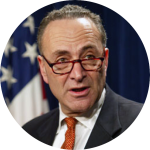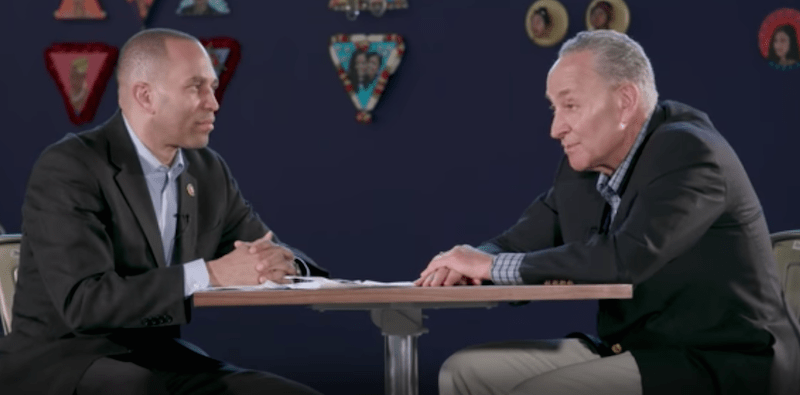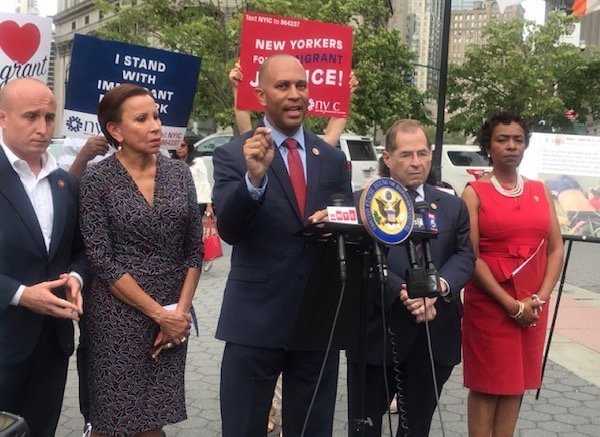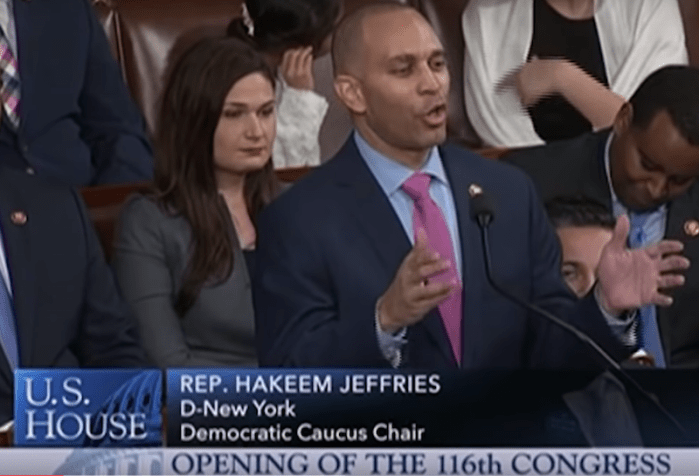U.S. Sen. Chuck Schumer (D-NY) and U.S. Rep. Hakeem Jeffries (D-Central Brooklyn, Queens) yesterday announced the reintroduction of the Marijuana Freedom and Opportunity Act, legislation that would remove cannabis from the list of scheduled substances under the Controlled Substances Act, effectively implementing decriminalization at the federal level.
Schumer, the Senate’s minority leader, first introduced this legislation last year. Jeffries, the lead sponsor of the House side is also the House Democratic Caucus Chair.


“It’s time to decriminalize marijuana, and this bill is a critical first step,” said Schumer. “The Marijuana Freedom and Opportunity Act would give states the right to make their own choices when it comes to regulation; better equip all Americans, particularly communities disproportionately impacted by marijuana’s criminalization, to participate in the growing marijuana economy; and, by incentivizing sealing and expungement programs, provide Americans with low-level marijuana convictions the opportunity to move forward.”
“For far too long, the impact of America’s repressive, archaic marijuana laws has been felt most heavily by people of color,” said Representative Hakeem Jeffries (NY-08). “This critical effort works to correct that injustice by providing $100 million toward expungement programs and creating an investment fund for people of color and female entrepreneurs who wish to enter the lucrative legal cannabis industry. Senator Schumer should be commended for his stalwart leadership in this regard.”
Specifically, the Marijuana Freedom and Opportunity Act would:
- Decriminalize Marijuana: Remove marijuana from the list of scheduled substances under the U.S. Controlled Substances Act of 1970, effectively decriminalizing it at the federal level.
- Respect States’ Rights: Maintain federal law enforcement’s authority to prevent trafficking from states that have legalized marijuana to those that have not.
- Level The Economic Playing Field: Establish dedicated funding streams to be administered by the Small Business Administration (SBA) for women and minority-owned marijuana businesses that would be determinant on a reasonable estimate of the total amount of revenue generated by the marijuana industry.
- Ensure Public Safety: Authorize $250 million over five years for targeted investments in highway safety research to ensure federal agencies have the resources they need to assess the pitfalls of driving under the influence of tetrahydrocannabinol (THC) and develop technology to reliably measure impairment.
- Invest In Public Health: Invest $500 million across five years for the Secretary of Health and Human Services to work in close coordination with the Director of National Institutes of Health and the Commissioner of Food and Drug Administration in order to better understand the impact of marijuana, including the effects of THC on the human brain and the efficacy of cannabis as a treatment for specific ailments.
- Protect Children: Maintains the Department of Treasury’s authority to regulate marijuana advertising in the same way it does tobacco advertising to ensure cannabis businesses cannot target children in their advertisements. The bill also allows the agency to impose penalties in the case of violations.
- Incentivize Sealing and Expungement Programs: Provides $100 million over five years to the Department of Justice in grants to encourage state and local governments to administer, adopt, or enhance expungement or sealing programs for marijuana possession convictions.
The two lawmakers also met at Brooklyn’s BRIC studios to make the following video on the issue. Check it out:










